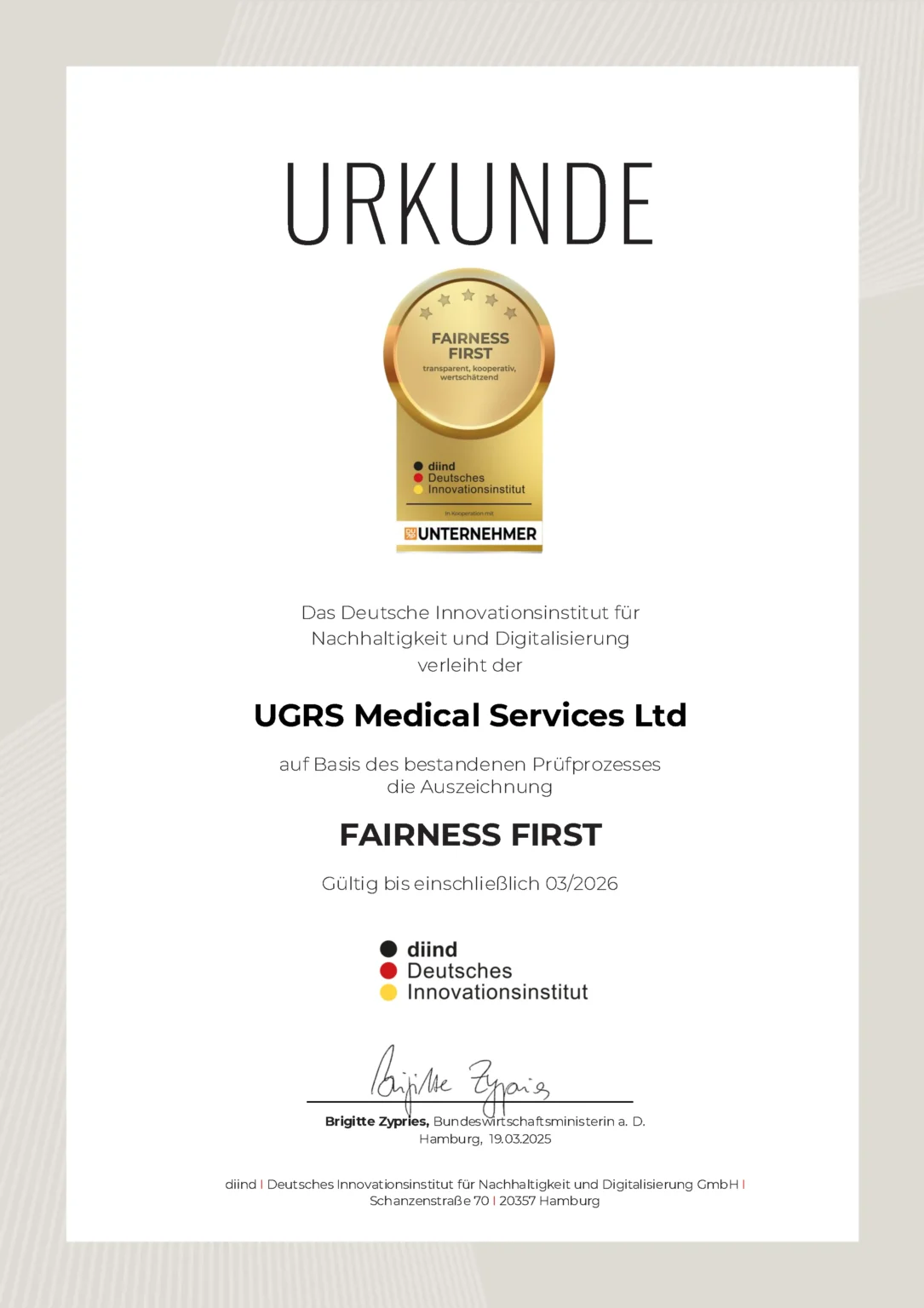Home » UGRS.Knowledge – Glossary on Penis Enlargement, Anatomy & Urology » Testosterone replacement therapy (TRT)
Testosterone replacement therapy (TRT)
Testosterone replacement therapy, or TRT for short, is a medical treatment in which men are given artificially produced testosterone. This therapy is used when the body no longer produces enough of its own testosterone – a condition known as testosterone deficiency or hypogonadism.
Why is TRT used?
Testosterone is the most important male sex hormone. It influences many physical and mental processes, for example:
- the development of muscles and bones
- the formation of sperm
- sexual desire(libido)
- mood, energy and concentration
If a man produces too little testosterone, this can lead to various complaints, e.g:
- Tiredness and listlessness
- Erectile dysfunction
- Loss of muscle mass
- Mood swings or depressive moods
- Decrease in bone density(osteoporosis)
- Infertility
In such cases, TRT can help to rebalance hormone levels and alleviate symptoms. Before starting TRT, a detailed medical examination is important, including the determination of the testosterone level in the blood.
How is TRT carried out?
Testosterone can be supplied to the body in various ways:
- Gel or cream for application to the skin
- Injections, usually into the muscle
- Patches that slowly release testosterone through the skin
- Tablets or capsules (less common, as less effective)
The therapy takes place over a longer period of time – often months or years – and is regularly monitored by a doctor. Blood values, prostate and other health data are monitored in order to detect side effects at an early stage.
Possible risks and side effects
- Skin changes (e.g. acne)
- Increased hair growth
- Water retention in the body
- Change in cholesterol levels
- Enlargement of the prostate
- Possible restriction of your own sperm production (especially in younger men who want to have children)
TRT is therefore generally only useful if there is a genuine medical testosterone deficiency – and not just to increase performance or build muscle.
This content is for general information purposes only and does not constitute medical advice, diagnosis or treatment recommendations. It is in no way a substitute for a professional examination or treatment by a licensed physician. If you have any health complaints or uncertainties, please always consult a medical professional – especially if you have any questions about intimate surgery or sexual health.








